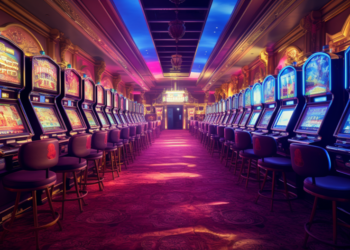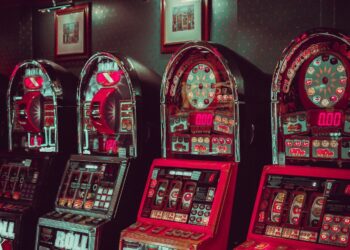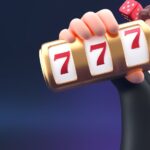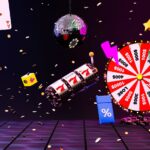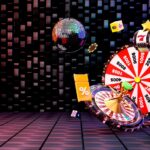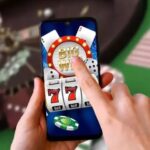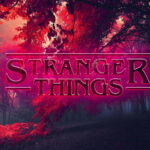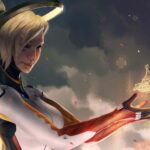Rust, an English actor who identifies herself as LGBTQIA+, often works for television and film in addition to video games. Last year she starred as Fleury in “Carnival Row” on Amazon Prime Video and wrote, directed and starred in the short drama “Satieti.”
We spoke with Rust about her experience as a Gaia representative in Final Fantasy XIV, Final Fantasy fandom in general, and her perspective as an LGBTQIA+ actress working in the TV, film and video game industries.
What was the role of Gaia in the story of the Eden of Final Fantasy XIV ? How was she similar or different from your work for television and film ?
Well, it’s similar to other voice-over roles in video games that I’ve done, in the way we produce them. But it’s very different from film and television. The biggest difference, of course, is that you’re in the booth and you’ll probably be alone most of the time. But you have time to work on every line of dialogue, much more than in a movie or a TV series, for example.
In something like Final Fantasy, you really have the time to go through the rules in many different ways of your own choosing. The good thing about video games is that as an actor you are not afraid to fail, because as long as you trust the people you are working with, you can try anything and they will steer you in the right direction.

In the beginning, there was a lot of mystery surrounding Gaia’s character. But in the second part of Eden’s story, she and Ryne quickly made up. By the end, Gaia knows exactly what she wants. What was it like to portray her as someone who goes through so much and comes out even stronger?
It’s interesting because it has many different facets. You could call her a three-dimensional character because she literally has three dimensions [laughs]. But she’s really interesting because of the different forms she takes. I really like that part.
I remember the first audition at [Square Enix], they gave me a bunch of slides, and I had no idea what it was like for Final Fantasy. But they gave me the freedom to do what I thought was right, with more intensity, because it’s really a very different Gaia for that. And I remember saying, “Are you sure you want me to live to be 100 years old for this?” And they said, “Yes, we can do it. Do it.” And I tried, and it was over. It was really, really cool. In general, you have to be careful about the choices you make as a character. I think with Gaia, it’s so liberating to be able to do whatever you want.
Do you know how Gaia’s story will end at the end of The Promise of Eden, or if she and Ryan will end up as a couple ?
Not at all. I think the first session I did was not that far off, but it didn’t really have anything to do with that. And then it slowly developed. It was really cool because the actress who plays Ryan, I think she’s brilliant. Emma Ballantine. So it was great. I love that part [laughs].
For many Final Fantasy XIV fans, the relationship between Gaia and Rain was a pleasant surprise. How did you create this bond through Gaia’s character?
That says it all, you know what I mean? I know it’s a vague association. We’re not quite there yet [in a romantic relationship], but there it is. I love exploring that, playing with that dynamic. And I love the characters. I may not be able to talk about the character in dialogue with the actress who plays Ryan, but I understand what’s going on, and that’s very nice.
What has been the reaction of fans to your work with Gaia? There’s a lot of fan art of her and Ryan, for example.
It’s the banana. One day I decided to google fan art, and it was absolutely overwhelming. I didn’t know there was such a response, or that anyone cared enough to spend hours on it. And neither did the cosplay. It’s mind-boggling. Honestly, it’s very moving. Because – as a fan, as a non-actor – I really love the character. So it’s very nice to see that other people have responded well to him.
Did you play Final Fantasy games before you got the role of Gaia?
Yes, I played Final Fantasy XIV after I got the role. I don’t really like MMOs, but this game – and the interest in what the character and everything else would look like – pushed me in that direction. I mean, it’s a hugely time-consuming game, in a really good way, but I spend too much time on it [laughs]. It’s fantastic. I’m playing it – well, right now, on my PS5.
Square Enix has never had such clear LGBTQIA+ combinations in its games. In Final Fantasy XIII, you can read a bit about the friendship between Fang and Vanilla, but that’s about it. As a fan, wouldn’t you like to see Square Enix present more stories like Gaia’s and Ryn’s?
I would love that, and I think they already have so many interesting options to build on. I don’t even think they’d have to put much effort into finding new characters or anything. And there are a lot of fans who would love to see that. I would love to see that. But I can’t speak for [Square Enix], of course. And I can’t say that as an actor either. But as a fan, absolutely.

You speak openly about the role artists play in influencing public opinion on a range of issues, from racism to homophobia to the lack of women in leadership positions. Can you share what your vision is and how it shapes you as an actor?
She makes very different decisions about what I’m working on. I’m much more concerned with the content and its effect on the community. I don’t want to be associated with something I don’t agree with. And I think it’s very important to talk about how society portrays negative things. For example, racism, homophobia – there are ways to portray them. You have to be very careful to portray it as if it’s not a good thing. There’s a lot of misogyny in the scenarios that I immediately say “No” to. I think we are all slowly moving in that direction by being very careful about what we do.
I really want to see more different people behind the scenes. Because if this is your experience, it won’t be a good read. If you write from your own life experience-whether you’re white, straight, or able-bodied-it’s much easier to write stories that reflect that. I’m not saying that you are only able to write or describe that experience if you are that person. What I’m saying is that it becomes a really great and authentic story if it comes from someone in that demographic. So I would love to see more women writers in general. More non-white writers. More LGBTQIA+ writers. Filmmakers. Things like that.
And this also applies to the roles of LGBTQIA+ actors. When you have so many people – especially the trans community – who are so limited in what they can do as actors, and you want to give that to someone who has money? No.

How do you think game developers and creators can continue to promote the medium as an art form when it comes to representation?
I think you have to at least think about proportional representation. Because if you think about it, at the end of the day, London, for example, is only 60% white. New York is 45% white. If you give me a show or a movie or a play that takes place in New York, do I really see that more than half of the characters are not white? I don’t think so. At least if we achieve that, it’s great. But I think we have a long way to go in that regard. And I think I have to say it’s getting better. We’re seeing an increase in representation. But there’s still a lot to do and I really want to see more, especially in terms of ethnicity.
What are you working on in the future? Do you think we’ll hear from you about another Square Enix project or video game in the near future?
I work on different projects – video games, movies, television. But now I can only talk about the fact that I recently wrote, directed and starred in my short film Patience. It got a great reception, which I’m very proud of, because I had to do it during a blockbuster, which saved my life for everything that was going on. It’s nice to have something to focus on, it’s artistic.
I think that’s all I can say. I’m sorry. I’m sorry. I’m sorry. I’m sure you know that video games are very secretive. It’s incredible. They’re much more mysterious than movies and television.


